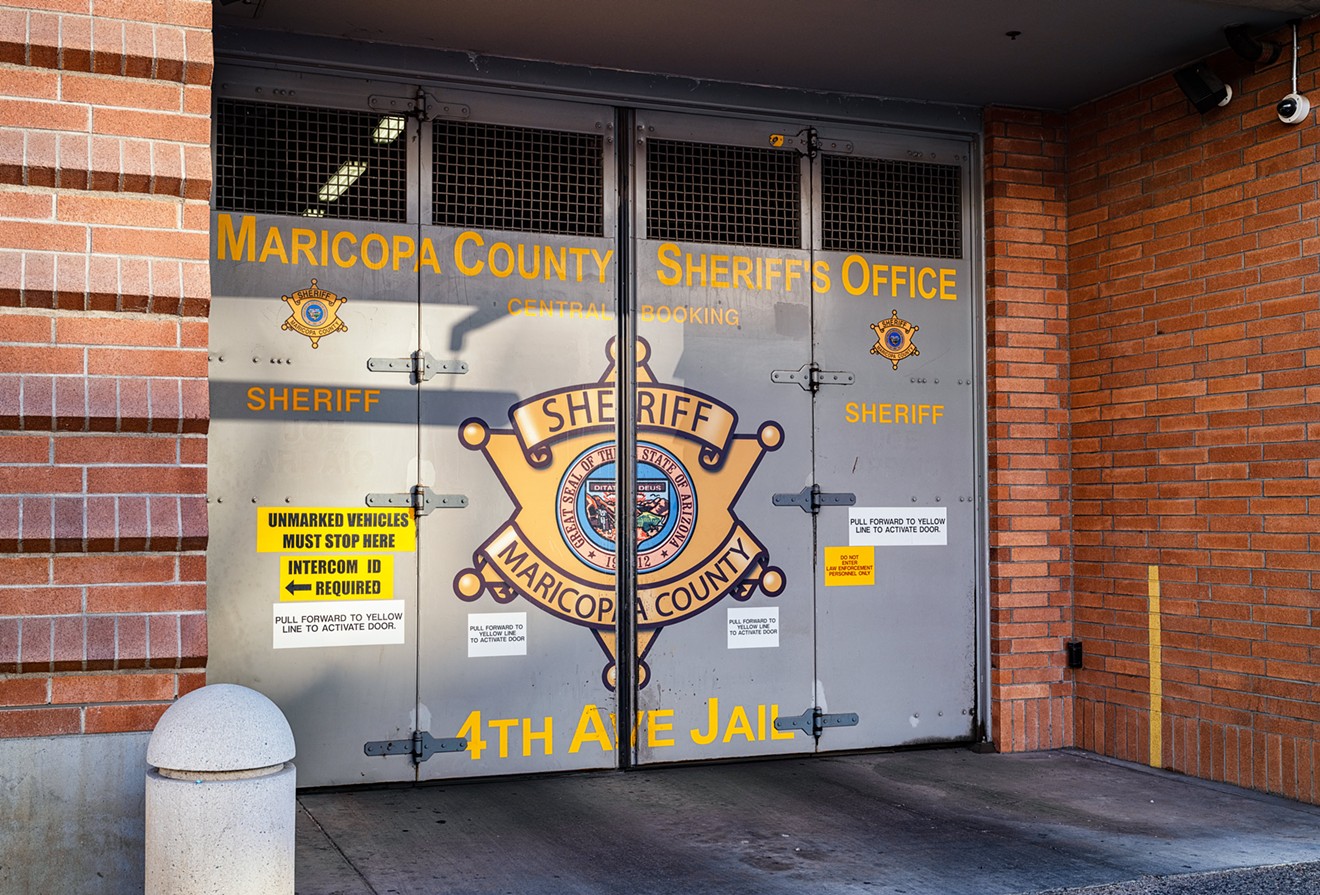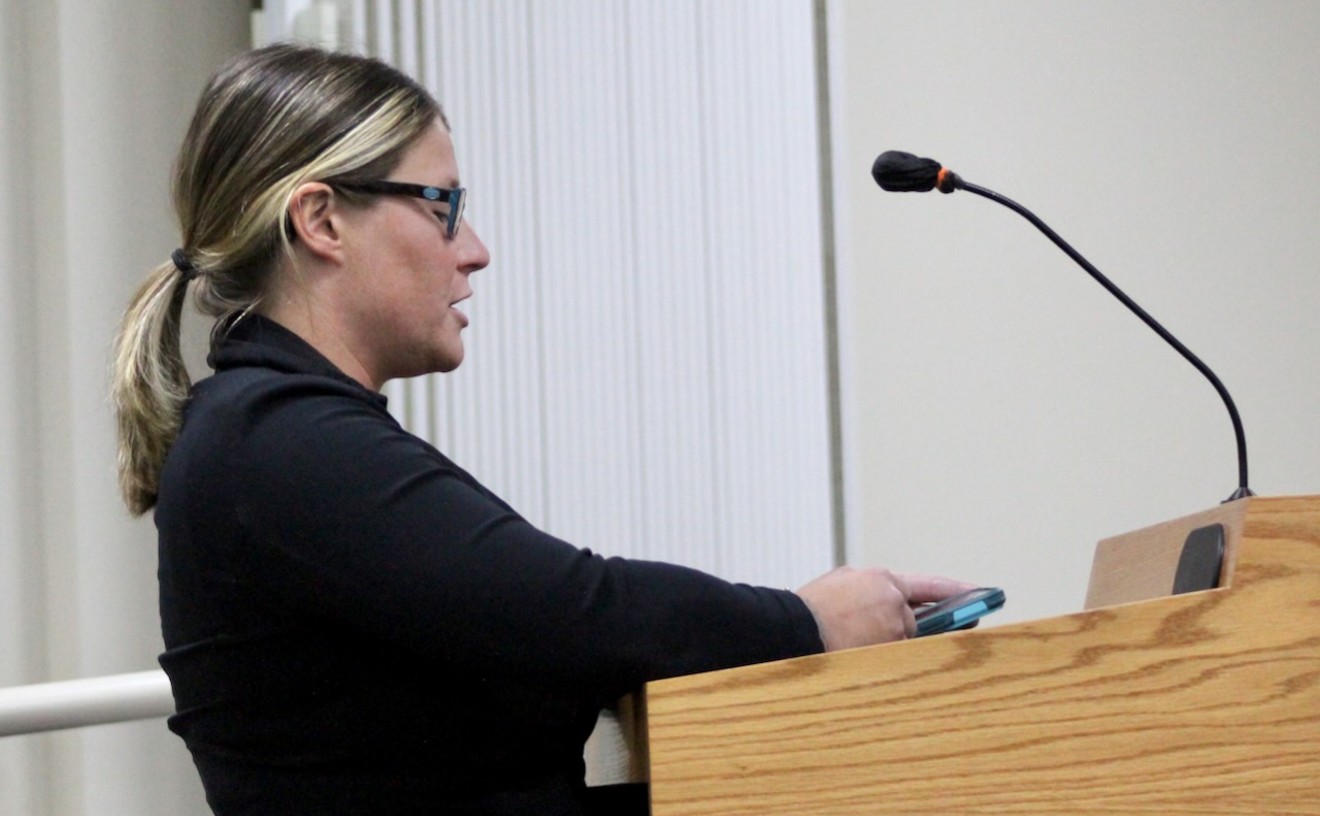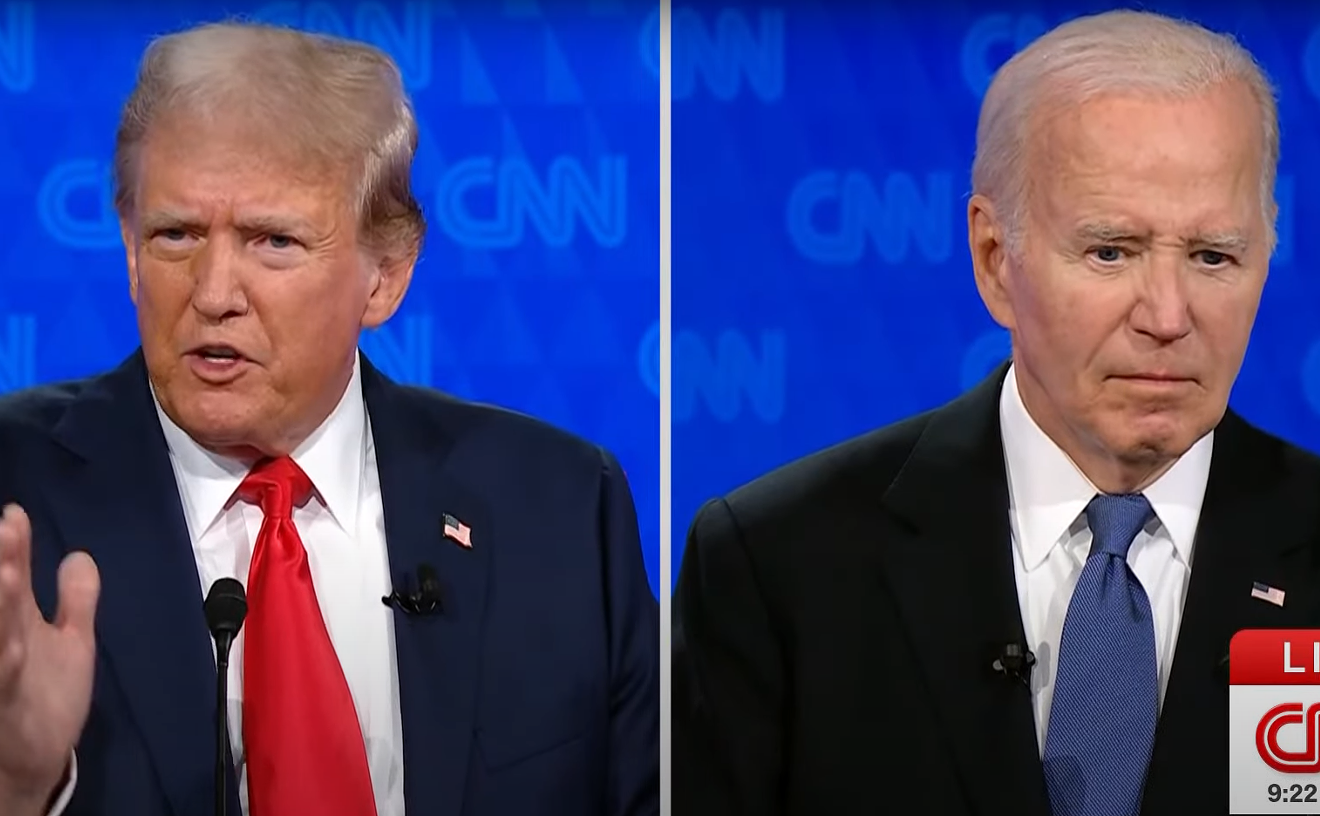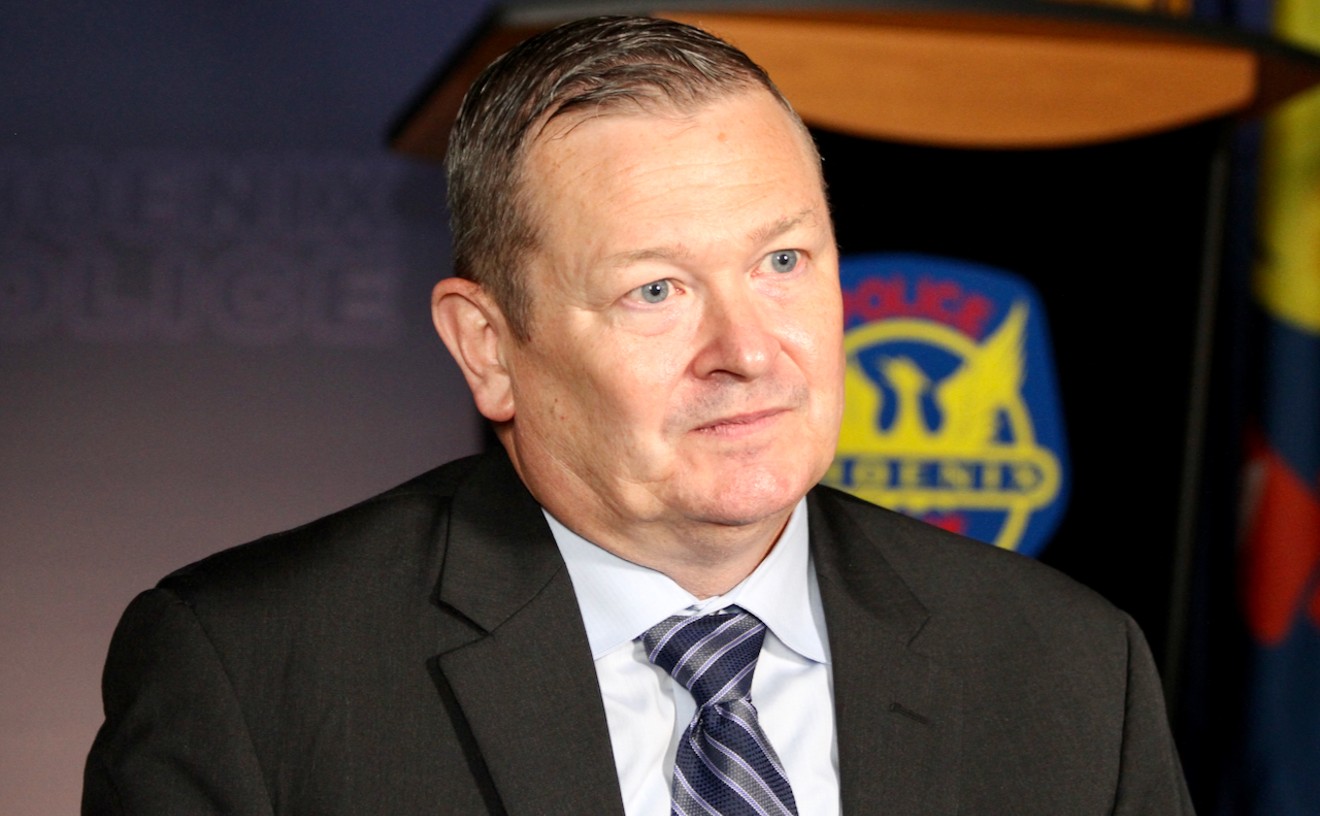Loretta Johnson has been sitting in Maricopa County's women's jail for nearly a year during the coronavirus pandemic.
She has watched while highly infectious variants of the virus, such as Delta and Omicron, have swept through the jails and infected thousands in custody.
But the difference between the general public and Johnson, who is 63 years old, is that she is still waiting for a chance to get the COVID-19 vaccine — two months after requesting it.
In new filings in its ongoing lawsuit against the Maricopa County Sheriff's Office, the American Civil Liberties Union claims that the agency has forced imprisoned people to wait months for COVID-19 vaccines and, in some cases, provided little information about their health benefits during doctors visits.
Johnson's case, ACLU attorneys say, is emblematic of the strained healthcare system in Maricopa County's jails.
This winter, understaffing and a wave of Omicron cases have strained the jail's already-troubled health care system. Last month, several people in custody, as well as county employees, told Phoenix New Times that the situation inside county jails had become increasingly chaotic in recent weeks.
Johnson was booked into the Estrella Jail in April 2021, back when vaccines were slowly being disseminated to the public and available at local pharmacies with an appointment. It was not immediately clear whether Johnson contracted COVID-19 during her stay.
Nor is it clear how many more women like Johnson are waiting for their chance to get a COVID-19 vaccine. Estrella Jail holds 1,500 incarcerated people who are dropping in and out of the legal system on any given day.
Maricopa County's jails house people in pre-trial detention — who have not yet been convicted of any crime — and those serving short sentences for minor offenses, typically under one year. Johnson recently took a plea deal for a drug possession charge and a DUI.
Johnson suffers from high blood pressure, sciatica, and degenerative arthritis, she testified in court pleadings. She is high-risk for complications from the virus, which has already infected nearly 2 million people in Arizona and caused 27,000 deaths.
On Friday afternoon, the Arizona branch of the ACLU filed a motion in federal court requesting that a judge "immediately" step in and order MCSO to provide a COVID-19 vaccine to Johnson.
"Each day Ms. Johnson is denied this basic and widely available protection, her health and safety are endangered," her attorneys wrote, arguing that the failure to provide the vaccine violated her due process rights.
The motion included declarations from two other women at Estrella Jail, who testified that they had waited weeks or months to receive the potentially lifesaving jab. All said they had underlying health conditions that made them high-risk for COVID-19 complications.
"When we heard that there are people inside Maricopa County jails who are asking to be vaccinated and are not being vaccinated we became quite concerned," one attorney on the case, Jared Keenan, told New Times.
"We have heard the same story over and over again," he said — inmates that requested the vaccine multiple times were told that they were on the waiting list to receive one, and never got the shot. Some waited more than two months.
MCSO spokesperson Monica Bretado said that the agency would not comment on pending litigation. She added that Correctional Health Services, which is run by the county, was largely responsible for the vaccination program and worked "in partnership" with MCSO on inmate health requests. A spokesperson for Correctional Health Services declined to comment, also citing pending litigation.
The testimony of the women at Estrella Jail "corroborate[s] the failings of Defendants’ vaccination program for people detained at the jails, some of which have even been conceded by Defendants’ own employees," ACLU attorneys alleged.
Although MCSO has professed its commitment to providing vaccinations to inmates — and even brought in the National Guard in November to help give vaccines to people in custody — ACLU attorneys wrote that the agency had still not developed an adequate vaccination program, nearly two years into the pandemic.
"Defendants have not developed any contingency plan to counteract the harmful effects... of prior and ongoing staffing shortages," the attorneys wrote. "Defendants do not have a reliable system to keep track of [inmates] who need [a] vaccination or a booster, nor do they have a policy requiring the provision of vaccines to [inmates] who have requested one within a certain period [of time]."
The ACLU cited testimony from the county's own correctional health staff and outside experts to support their legal arguments. Currently, though, these depositions — which would reveal key details about MCSO's correctional health policies — are sealed from public view.
The testimony forms part of the ACLU's ongoing class-action lawsuit against MCSO over the agency's response to the spread of COVID-19 in its jails, Fenty et al. v. Penzone et al.
The initial complaint, filed back in June 2020, alleged that the jails "[had] not instituted even the most basic safeguards for incarcerated persons and staff" to protect against the disease. The case is still ongoing and appears to be moving toward a trial, although no date has been set.
According to the declarations filed on Friday, inmates are still struggling to access basic healthcare.
Ashley Wilkeyson, who is also inside Estrella Jail, testified that after initially refusing a vaccine in spring 2021, she changed her mind and submitted at least four requests for a vaccine in the fall. It was only on February 1, nearly four months after her first request, that Wilkeyson received the first dose of the Moderna vaccine.
The women also testified that they had not been provided much information about the vaccine and its benefits.
"I do not recall receiving any piece of paper giving any information about the vaccine, and I did not have the chance to talk to any medical staff about the vaccine," Desiree Rodriguez, who has been incarcerated at the same women's jail since October 2020, testified.
In December emails included in the lawsuit, Ashlee Hesman, a lawyer for MCSO, initially claimed the ACLU attorneys' allegations about vaccination delays were "unsubstantiated," saying that the agency's records showed that Wilkeyson had not requested the vaccine until December 18, after declining it twice.
Still, MCSO has not disputed that both Wilkeyson and Johnson waited around two months to receive a vaccine after their initial request.
"The jail has access to vaccines," Keenan said. "There's just no reason why they shouldn't be immediately be vaccinating anyone who requests one."
Will Humble, executive director of the Arizona Public Health Association, told New Times that Johnson and Wilkeyson had requested vaccines at a crucial moment — before the peak of the Omicron wave.
"By and large, the persons who were unwilling or unable to get vaccinated got Omicron," he said. "Especially that holds in a congregate setting like a jail."
Waiting weeks to provide the vaccine as cases were spiking, Humble said, left the inmates unprotected amid the "virtually unmitigated spread" that began with the omicron wave. Providing vaccines, he said, "mattered more then than it does now."
Cassidy Stigler, who is currently in custody at Estrella Jail, told New Times in a recent phone call that she had seen inmates face long wait times for vaccines and medical requests "all the time."
"They're able to pick and choose when you can get [medical care] and when you can't," she said, saying she had been taken off pain medication for abscesses in her mouth and had doctor's appointments delayed.
Despite the ACLU's request for immediate action, Keenan estimated that it would take several weeks for the court to consider the request for judicial intervention.
Johnson might be released by the time either a judge forces the jail to give her the vaccine or the county steps up.
[
{
"name": "Air - MediumRectangle - Inline Content - Mobile Display Size",
"component": "18478561",
"insertPoint": "2",
"requiredCountToDisplay": "2",
"astAdList": [
{
"adType": "rectangle",
"displayTargets": "mobile",
"watchElement": ".fdn-content-body"
}
]
},{
"name": "Editor Picks",
"component": "16759093",
"insertPoint": "4",
"requiredCountToDisplay": "1"
},{
"name": "Inline Links",
"component": "17980324",
"insertPoint": "8th",
"startingPoint": 8,
"requiredCountToDisplay": "7",
"maxInsertions": 25
},{
"name": "Air - MediumRectangle - Combo - Inline Content",
"component": "16759092",
"insertPoint": "8th",
"startingPoint": 8,
"requiredCountToDisplay": "7",
"maxInsertions": 25,
"astAdList": [
{
"adType": "rectangle",
"displayTargets": "desktop|tablet",
"watchElement": ".fdn-content-body"
},{
"adType": "rectangle",
"displayTargets": "desktop|tablet|mobile",
"watchElement": ".fdn-content-body"
}
]
},{
"name": "Inline Links",
"component": "17980324",
"insertPoint": "8th",
"startingPoint": 12,
"requiredCountToDisplay": "11",
"maxInsertions": 24
},{
"name": "Air - Leaderboard Tower - Combo - Inline Content",
"component": "16759094",
"insertPoint": "8th",
"startingPoint": 12,
"requiredCountToDisplay": "11",
"maxInsertions": 24,
"astAdList": [
{
"adType": "rectangle",
"displayTargets": "desktop|tablet",
"watchElement": ".fdn-content-body"
},{
"adType": "rectangle",
"displayTargets": "desktop|tablet|mobile",
"watchElement": ".fdn-content-body"
}
]
}
]











